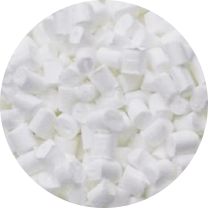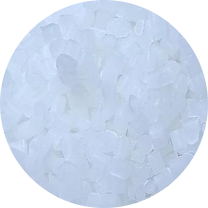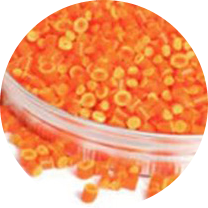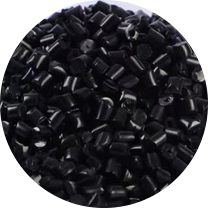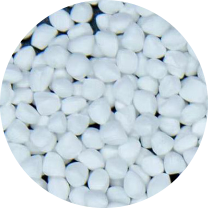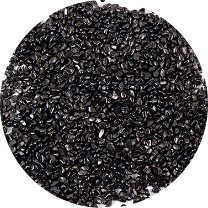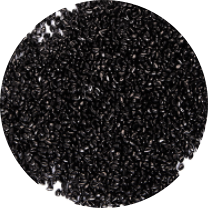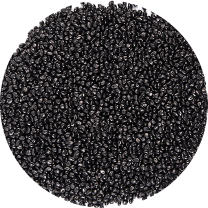What are the application prospects of FPM Functional Property Masterbatch in recycling plastics?
As plastic recycling receives increasing attention, what are the application prospects of FPM Functional Property Masterbatch in recycling plastics? How to ensure that FPM does not affect the recycling and reuse of plastics and can maintain or improve the performance of recycled plastics?
As the world pays increasing attention to sustainable development, plastic recycling has become an important means to reduce environmental pollution, save resources and achieve a circular economy. In this context, the application prospects of FPM (Functional Property Masterbatch) in recycling plastics are very broad.
Application prospects of FPM in recycling plastics
Improving the performance of recycled plastics:
FPM can improve the physical and chemical properties of recycled plastics, such as strength, weather resistance, aging resistance, etc., by adding specific functional additives, such as plasticizers, antioxidants, anti-UV agents, etc.
Achieve functional recycling:
FPM allows the introduction of specific functionalities into recycled plastics, such as conductivity, magnetism, antibacterial properties, etc., thus broadening the application fields of recycled plastics, such as electronic appliances, medical and health care, packaging, etc.
Simplify the recycling process:
Using FPM can reduce impurities and color differences in recycled plastics, making the recycling process simpler and more efficient, and increasing the recycling rate.
Ensure FPM does not impact plastic recycling
Choose recycled FPM ingredients:
When selecting FPM, priority should be given to using recyclable ingredients, such as biodegradable additives, environmentally friendly carrier resins, etc., to reduce the potential impact on recycled plastics.
Maintain FPM compatibility with recycled plastics:
When applying FPM to recycled plastics, it is necessary to ensure good compatibility between the FPM and the recycled plastics to avoid problems such as delamination, sedimentation or performance degradation.
Optimize FPM formula and process:
By optimizing the formula and processing technology of FPM, the residue and accumulation of FPM in recycled plastics can be reduced, and its impact on the performance of recycled plastics can be reduced.
Establish recycling standards and certification systems:
Establish a complete FPM recycling standard and certification system to standardize the production and use of FPM to ensure that it will not have a negative impact on recycled plastics.
Strengthen cooperation and research and development:
Strengthen cooperation with the recycling plastics industry, scientific research institutions and related organizations, jointly develop FPM products and technologies suitable for recycling plastics, and promote the application and development of FPM in the field of recycling plastics.
FPM has broad application prospects in recycling plastics. By selecting recyclable ingredients, maintaining the compatibility of FPM with recycled plastics, optimizing formulas and processes, establishing recycling standards and certification systems, and strengthening cooperation and research and development, we can ensure that FPM does not affect the recycling and reuse of plastics and can maintain or improve recycling. Properties of plastics. This will help promote the sustainable development of the plastic recycling industry and achieve resource recycling and environmental protection.

PEPP Granular Plastic Polyethylene Functional Open Masterbatch
As the world pays increasing attention to sustainable development, plastic recycling has become an important means to reduce environmental pollution, save resources and achieve a circular economy. In this context, the application prospects of FPM (Functional Property Masterbatch) in recycling plastics are very broad.
Application prospects of FPM in recycling plastics
Improving the performance of recycled plastics:
FPM can improve the physical and chemical properties of recycled plastics, such as strength, weather resistance, aging resistance, etc., by adding specific functional additives, such as plasticizers, antioxidants, anti-UV agents, etc.
Achieve functional recycling:
FPM allows the introduction of specific functionalities into recycled plastics, such as conductivity, magnetism, antibacterial properties, etc., thus broadening the application fields of recycled plastics, such as electronic appliances, medical and health care, packaging, etc.
Simplify the recycling process:
Using FPM can reduce impurities and color differences in recycled plastics, making the recycling process simpler and more efficient, and increasing the recycling rate.
Ensure FPM does not impact plastic recycling
Choose recycled FPM ingredients:
When selecting FPM, priority should be given to using recyclable ingredients, such as biodegradable additives, environmentally friendly carrier resins, etc., to reduce the potential impact on recycled plastics.
Maintain FPM compatibility with recycled plastics:
When applying FPM to recycled plastics, it is necessary to ensure good compatibility between the FPM and the recycled plastics to avoid problems such as delamination, sedimentation or performance degradation.
Optimize FPM formula and process:
By optimizing the formula and processing technology of FPM, the residue and accumulation of FPM in recycled plastics can be reduced, and its impact on the performance of recycled plastics can be reduced.
Establish recycling standards and certification systems:
Establish a complete FPM recycling standard and certification system to standardize the production and use of FPM to ensure that it will not have a negative impact on recycled plastics.
Strengthen cooperation and research and development:
Strengthen cooperation with the recycling plastics industry, scientific research institutions and related organizations, jointly develop FPM products and technologies suitable for recycling plastics, and promote the application and development of FPM in the field of recycling plastics.
FPM has broad application prospects in recycling plastics. By selecting recyclable ingredients, maintaining the compatibility of FPM with recycled plastics, optimizing formulas and processes, establishing recycling standards and certification systems, and strengthening cooperation and research and development, we can ensure that FPM does not affect the recycling and reuse of plastics and can maintain or improve recycling. Properties of plastics. This will help promote the sustainable development of the plastic recycling industry and achieve resource recycling and environmental protection.

PEPP Granular Plastic Polyethylene Functional Open Masterbatch
prevNo previous article
nextHow to ensure that the functional particles in FPM Functional Property Masterbatch can be evenly dispersed in the plastic substrate?


 English
English 中文简体
中文简体 한국어
한국어 عربى
عربى
